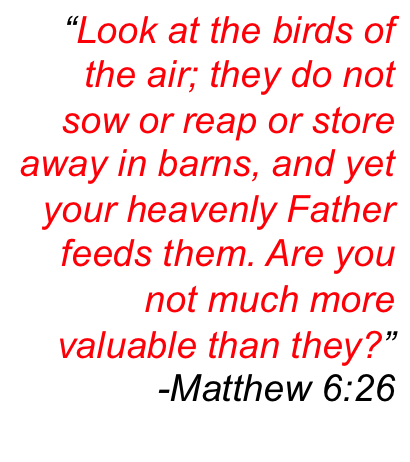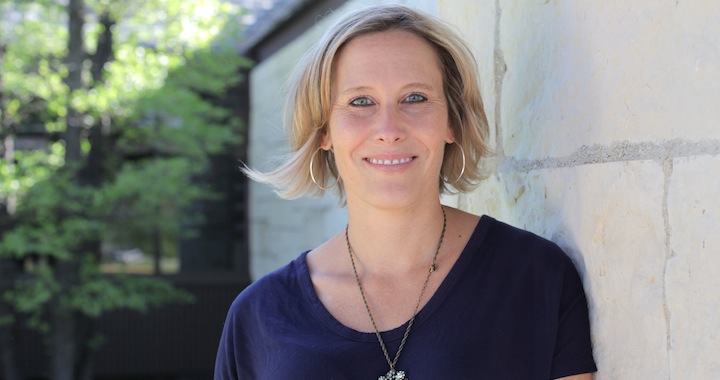A lot of Christians—myself included—have, until recently, been sort of…sleepy…about climate change. After traveling to Malawi this year with Evangelical Environmental Network—learning from Africans whose communities have already been irreversibly altered by a changing climate—I wanted to learn more from an American who has woken up to the reality of a changing climate. Tracey Bianchi is a pastor at Christ Church of Oak Brook, Illinois, and the author of Green Mama: The Guilt-Free Guide to Helping You and Your Kids Save the Planet.
Tracey, we’ve heard that climate change is impacting our planet, but frankly it doesn’t seem to impact my daily life. It’s going to start to be a problem for my descendants in like 200 years, right?
It’s funny because people say this all the time but it already impacts our daily lives. Ask anyone on the Jersey Shore if Superstorm Sandy impacted their life. Just look at the odd weather patterns we experience in the US alone. In my own community we experienced two “100 year floods” in three years. Our own home has been flooded both times and we don’t even live in a technical “flood plain.” It impacts us already. Our weather is unpredictable, droughts have raised food prices, the flooding out in Boulder County and throughout Colorado this past month sure impacted the daily lives of those in the Denver area. The changing climate impacts all of us, it’s just that most of us choose not to identify these stories as climate stories. They are touted as “freak of nature” stories but the reality is they are now becoming normative.
Tell me why the issue of climate change matters to you, Tracey.
I’m a follower of Jesus who cares about justice and equality and when we even scratch the surface of most environmental issues we discover that they are really justice issues. Tainted by politics and sequestered by naysayers, environmental conversations are just now being viewed for what they really are, justice issues. How do we live and move through this world using resources wisely so there are enough for all?
How we treat the earth is ultimately a justice issue that God cares about very deeply because God loves the people impacted by our planetary neglect. As we continue to argue about the science and politics behind climate change, millions of people struggle daily with drought, famine, flooding, rising sea levels, shrinking food sources and lack of clean water. People are on the receiving end of these atrocities. Moms and dads, sisters and brothers, best friends and odd aunts and uncles. People are getting the shaft and that matters to God. So it matters to me.
Tracey, earlier this year Pastor Mark Driscoll quipped, at Catalyst, “I know who made the environment and he’s coming back and going to burn it all up. So yes, I drive an SUV.” Can you say something about the resistance of some Christians to taking environmental threats seriously?
 My experience of Mark Driscoll is that he likes to shock people, it sells books, so this statement does not surprise me. His sentiment sums up the way many Christians who are anti-environment feel. They claim that good, Biblical Christians don’t worry about such things because indeed, the Bible says that Jesus is coming again. But what the Bible also says (like in the first chapter) is that we are to steward over the things of God until he returns, the earth and the resources he gave us. I’ve not seen a scripture to support what Driscoll says, to support the theory that we can abuse all God left us in charge of and find that somehow God will shrug it off because “it’s all gonna burn.” This line of thinking is not even close to theologically accurate.
My experience of Mark Driscoll is that he likes to shock people, it sells books, so this statement does not surprise me. His sentiment sums up the way many Christians who are anti-environment feel. They claim that good, Biblical Christians don’t worry about such things because indeed, the Bible says that Jesus is coming again. But what the Bible also says (like in the first chapter) is that we are to steward over the things of God until he returns, the earth and the resources he gave us. I’ve not seen a scripture to support what Driscoll says, to support the theory that we can abuse all God left us in charge of and find that somehow God will shrug it off because “it’s all gonna burn.” This line of thinking is not even close to theologically accurate.
Wise stewardship of God’s gifts is a way of living as the people of God. A cursory look at the Psalms reveals to us that the glory of God is displayed in the heavens and the earth. That the earth is a way God reveals himself to his people. So when we trash it recklessly, we slap God in the face. We let him know that we don’t really care if the skies proclaim the work of his hands because we’d rather fill them up with smog and proclaim the work of our SUV’s. We don’t care if the mountains and the hills burst forth with statements about God because we’d rather clear cut that hillside to make room for track housing. Driscoll’s statement is bad theology.
Preacher, you’ve got 60 seconds to speak to Christian skeptics—ones who aren’t all that compelled to address environmental issues—so…GO!
I think really it comes down to asking ourselves what we believe about the character of God on these issues. Do we believe that the heavens declare the glory of God? That the skies proclaim the work of his hands? Do we believe that the earth is the Lord’s and everything in it? Do we believe that Jesus was more interested in compassion than consumption?
And if given the choice, how do we honestly believe Jesus would respond to a community of people working toward clean air or battling their eroding shoreline? What would he do in the face of a shrinking food and water supply? Or what about the disappearing beauty that leads so many to worship not the land itself, but the glorious Creator who brought all things to life?
Jesus would roll up his sleeves to help and then likely, turn around and preach it up good against the systems and people, the hypocrites and naysayers, that propagated such atrocities. So I’d ask the skeptics to reconsider the age-old cliché-of-cliches . . . WWJD?
How does the life and ministry of Jesus inform environmental issues today?
Jesus appreciated nature, he used the natural world as a source of the parables and stories he told. He illustrated God’s goodness and love for this world through images from nature (insert any proof text you’d like from the Gospels, there are many). He spent time outside. He seemed to like to fish. He spokes of seeds and sparrows and never once was seen abusing any of the resources provided. Often, those who claim environmental issues are not Biblical issues will say that Jesus never overtly advocated for recycling or the Clean Air Act. True. That said, just because the phrases “Creation Care” or “Environmental Justice” do not appear in Scripture does not mean Jesus could give a rip about the earth. Jesus never hoarded resources, never clear cut a forest to make way for a sermon. We do not read that the people who followed him left all their trash behind. The Commandment, “Thou shalt not steal” applied to the life of Jesus. He never took more than his share of the resources. That would have been stealing. That would break the heart of God. He traveled lightly. He was Christ, not a consumer. If we are called to follow in the way of Jesus, we would all tread more lightly on God’s planet.
Okay, I’m convinced. What’s my first baby step? How do I respond?
The knee-jerk response here is to unpack my token “10 Things You Can Do” list but all of us can google that on our own. The best thing any of us can do is to actually go outside and enjoy God’s Creation. Log off, shut the laptop. Feel the warmth of God’s sun as autumn fades into winter. Take a walk, marvel at the clouds, the trees, the birds of the air of the lilies of the field. Take it all in and consider for a moment what God wanted you to know about his glory and majesty through Creation. When we care deeply for things, we get involved. When we care deeply for the world God created, we will respond. Suddenly that open space you walk past every day is threatened by a developer or the community garden you tend is on the chopping block at city council. You will begin to get involved and only God knows where in the world that will lead you next. When you love the God who created it all, you cannot help but join in.
*********
Learn more and get involved by connecting with the Evangelical Environmental Network.

